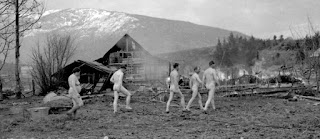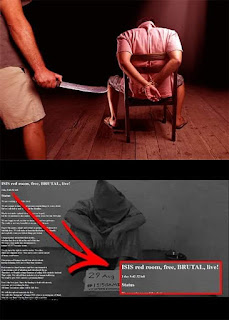Understanding the origins of the French people
The Term French: Origins, Gauls, and Franks
The term "French" carries historical significance, encompassing the people, language, and culture associated with France. Understanding the origins of the French people involves exploring the ancient Gauls and their eventual merging with the Franks. This essay delves into the etymology of the term "French" and highlights the distinctions between the Gauls and the Franks.
Etymology and Origin:
The term "French" finds its roots in the Latin word "Francus." During the Roman era, Francus was used to refer to a Germanic tribe inhabiting the region now known as France.
Over time, the name "Francus" evolved to encompass the entire region and its people, eventually leading to the term "French" in English, which first appeared in the 14th century. The etymology showcases the connection between the Germanic tribes and the eventual formation of France as a unified entity.
The Gauls:
Before the establishment of France, the land was primarily inhabited by the Gauls. The Gauls were a Celtic people who inhabited the region in pre-Roman times, characterized by their distinct language, customs, and tribal organization. The Gauls were renowned for their bravery, as demonstrated by their resistance against Julius Caesar's Roman conquests in the 1st century BCE. They had a rich and diverse culture, encompassing art, craftsmanship, and spiritual beliefs.
The Franks:
The Franks, on the other hand, were a Germanic confederation that emerged during the Migration Period in Europe, around the 3rd century CE. Originating from regions around the Lower Rhine and Weser rivers, the Franks gradually expanded their influence and established a powerful kingdom. Under the leadership of figures such as Clovis I, the Franks became a dominant force in Western Europe.
The Merger of Gauls and Franks:
The Gauls and the Franks had distinct origins, languages, and cultural practices. However, the merging of these two groups played a crucial role in the formation of the French identity. Following the decline of the Western Roman Empire, the Franks began to assert their dominance in Gaul. Through a combination of military conquests and diplomatic alliances, the Frankish Kingdom extended its reach over Gaul, absorbing the Gauls into their culture.
The process of merger was gradual, and it involved the assimilation of Gaulish elements into the evolving Frankish society. The language of the Gauls began to merge with the Germanic Frankish language, giving rise to what would eventually become Old French. This linguistic fusion formed the basis for the development of the French language as we know it today.
Distinctive Features:
While the Gauls and the Franks contributed to the formation of the French identity, there are notable distinctions between them. The Gauls were an indigenous Celtic people with their own rich cultural heritage, whereas the Franks were a Germanic confederation that migrated into the region. The Gauls had a decentralized tribal structure, while the Franks established a centralized monarchy.
Additionally, the Gauls possessed a unique artistic style, known for intricate metalwork and vibrant designs, whereas the Franks showcased their own distinct craftsmanship and artistic expressions. The Gauls had a polytheistic religious system, while the Franks eventually converted to Christianity under the influence of Clovis I.
Conclusion:
The term "French" emerged from the Latin word "Francus," originally used to describe a Germanic tribe but eventually encompassing the entire region of France. The Gauls, an ancient Celtic people, and the Franks, a Germanic confederation, played significant roles in the formation of the French identity. While the Gauls were the indigenous inhabitants of the region, the Franks gradually gained prominence, leading to the establishment of a powerful Frankish Kingdom in Gaul. The merger of these two groups resulted in the assimilation of Gaulish elements into Frankish society, shaping the evolving French identity.
Despite their distinct origins, languages, and cultural practices, the Gauls and Franks shared commonalities as well. Both groups exhibited a strong sense of bravery and resilience, with the Gauls famously resisting Roman conquest and the Franks establishing a dominant presence in Western Europe. This shared spirit of strength and determination likely played a role in their eventual fusion.
The linguistic fusion between Gaulish and Frankish languages was a crucial aspect of the merger. As the Franks gained influence in Gaul, the Gaulish language began to integrate with the evolving Frankish language, leading to the development of Old French. Over time, this linguistic amalgamation formed the foundation for the French language, which evolved into the rich and expressive language spoken today.
The merger of the Gauls and Franks also had significant implications for governance and social structure. The Gauls had a decentralized tribal system, while the Franks established a centralized monarchy under leaders such as Clovis I. This transition from tribal organization to a unified monarchy shaped the political landscape of the region and laid the groundwork for the formation of modern France.
Culturally, the Gauls and Franks had distinct artistic styles and religious beliefs. The Gauls were known for their intricate metalwork, vibrant designs, and Celtic artistic expressions. On the other hand, the Franks developed their own unique craftsmanship and artistic traditions, influenced by their Germanic heritage. While the Gauls adhered to a polytheistic religious system, the Franks eventually embraced Christianity, particularly under the conversion of Clovis I, which had a lasting impact on the religious and cultural landscape of France.
In conclusion, the term "French" originated from the Latin word "Francus" and gradually encompassed the people, language, and culture associated with France.
The Gauls, an ancient Celtic people, and the Franks, a Germanic confederation, played pivotal roles in the formation of the French identity. Despite their distinct origins and cultural practices, the merger of these two groups over time resulted in the assimilation of Gaulish elements into the evolving Frankish society.
This fusion influenced the development of the French language, governance structures, and cultural expressions, laying the foundation for the diverse and rich heritage of modern France.











Comments
Post a Comment